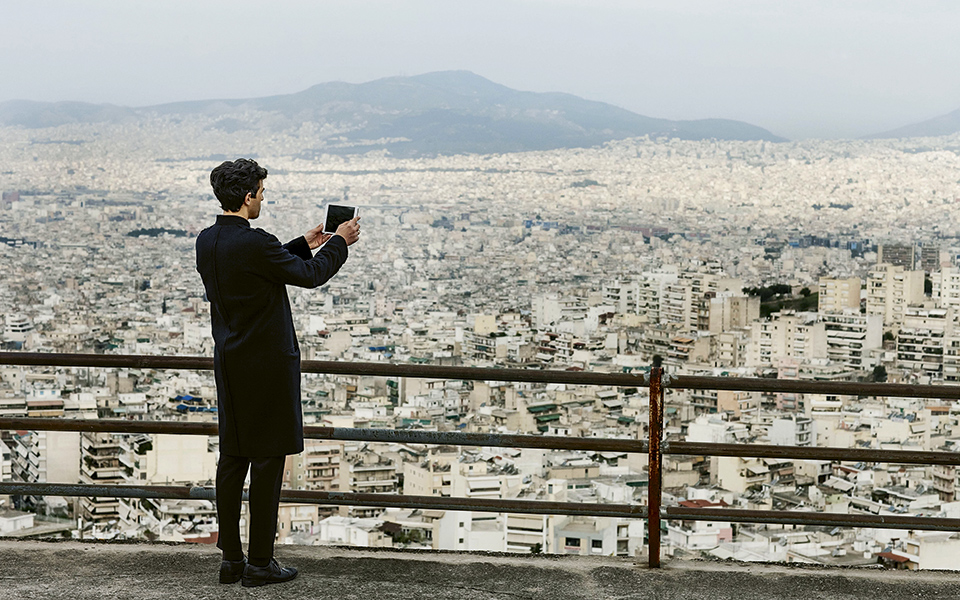Modern Athens, unlike Paris or London, has never been a major art capital. In the last few years, however, this seems to be changing. Μore and more foreign curators, artists and other cultural workers are visiting Athens or settling permanently in the city in order to explore its vibrant art scene, draw inspiration from its rough urban landscape and study its contemporary culture.
“At the moment, Athens looks like a big art residency,” says Afroditi Gonou, a historian and contemporary art consultant at the Museum of Cycladic Art. “Despite the financial crisis, things are happening. There are many promising Greek artists who have developed an efficient network of communication: they exchange ideas and support each other. It might be too early to talk about a new movement, but for the first time, we are witnessing the creation of an art scene.”
Is Athens turning into an arts hotspot? The signs are certainly there: the collaborative force, the sense of greater activity, the feeling that something new is emerging. On the other hand, the market is moribund and there is a definite lack of support from the various institutions. In order to explain this paradox, we need to go back a few years.
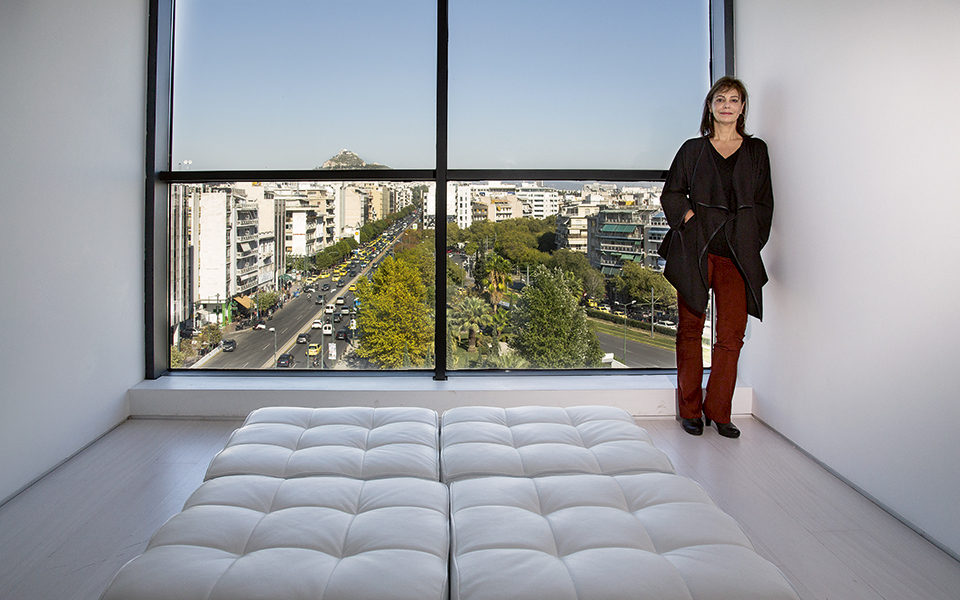
“The National Museum of Contemporary Art is a strategically placed landmark that is certainly worth visiting for a comprehensive overview of Greece’s cultural identity. We hope that, along with other art organizations that are active and growing against all odds, it will change the face of Greece’s beleaguered and overlooked visual arts community.”
– KATERINA KOSKINA, Director of the National Museum of Contemporary Art (EMST)
Right before the onset of the financial crisis, the art sector in Athens appeared to be inactive. The National Museum of Contemporary Art (EMST), which should have opened in 2004, still remained closed. There were only a few galleries, and the ones that existed weren’t very open to new names, fresh ideas or experimentation. Up-and-coming artists and curators didn’t really have a place to express themselves, so they developed their own initiatives. One such enterprise was the Athens Biennale, launched in 2007 under the prophetic title “Destroy Athens.”
However, the deterioration of the financial situation suddenly changed the game: artists began reading the cityscape in new ways, started moving into low-rent studios and created places where they could live and interact. Turmoil ensued: independent groups were formed, artist-run spaces and residencies were established, exhibitions were organized in unconventional places, collaborative projects began taking shape, new artistic institutions were created and street art rose to new heights. Most importantly, however, the actual works produced were of exceptional quality and could stand comparison with art from anywhere in the world.
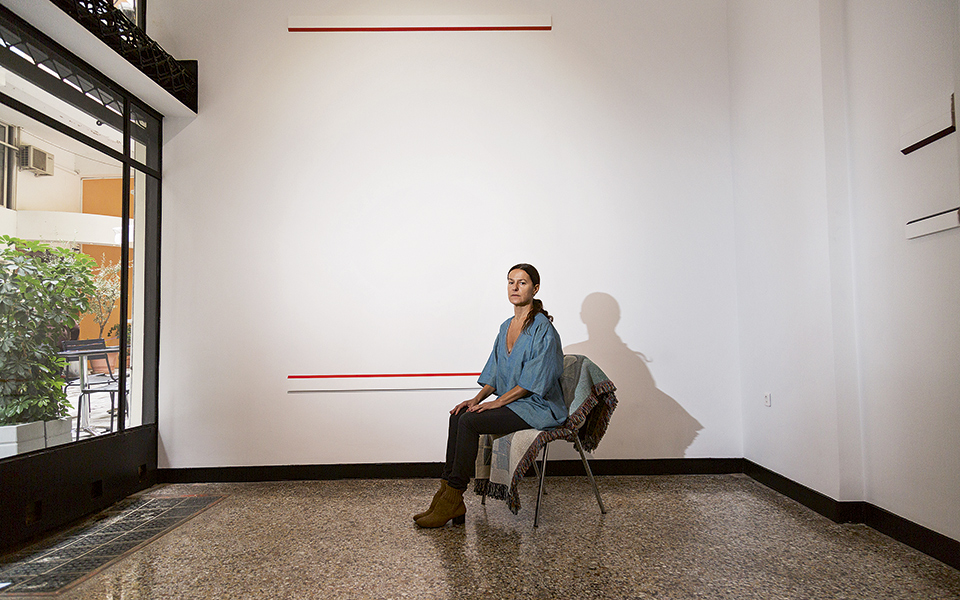
“It’s strange, because one would expect that nothing would be happening here during such a time of crisis. But there are so many exhibitions being organized that it’s hard to keep up. What we’re doing here is just as good as what’s being done abroad.”
– HELENA PAPADOPOULOS, Radio AthEnes Director
Although this emerging scene was still unformed, it was attracting a great deal of interest. It resembled a boiling cauldron which contained many ingredients, but nobody was quite sure what was cooking. In the meantime, Athens itself was drawing more and more members of the art crowd, coming here to attend events or visit artist friends. In either case, they felt some kind of energy pulling them to this city. They saw Athens as this beautiful place full of life and quirkiness.
The people, the cafés, the museums, the archaeological sites, the street art, the chaotic architecture, the nightlife, the beaches and the sun seemed all interconnected. Some started calling it “New Berlin,” although this wasn’t particularly apt – perhaps the only thing that the two cities had in common was the re-use of empty space and a strong “do it yourself” mentality. The discourse that developed regarding the differences between the “North” and “South” of Europe also played an important role.
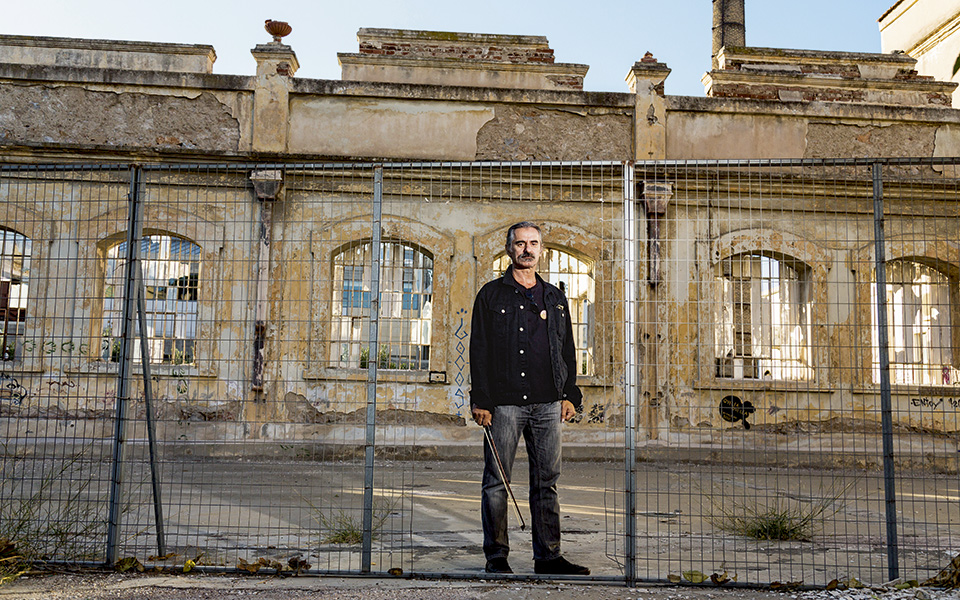
“What constitutes the ontology of the Athenian visual arts scene? It’s a relatively minor scene in constant movement. This kind of mobility existed in my generation, only we would go abroad to learn. In contrast, there is more of a sense of parity nowadays. There is no inherent provincialism.”
– PANOS HARALAMBOUS, DEAN of the Athens School of Fine Arts
“A part of the artistic world tends to run to wherever they can locate pain and woe,” commented Yorgos Tzirtzilakis, a consultant at the DESTE Foundation for Contemporary Art. “Greece is a traumatized area. The issue now is how to utilize this sudden interest in the country so that we offer something new and not just rely on this notion of trauma. That is the real challenge. The Athenian art scene is restless, promising and undoubtedly more active than ever, as many artists are achieving international recognition. But Athens needs to develop its own ‘language’ so that it can find its place in the international artistic scene.”
In the meantime, Polish curator Adam Szymczyk, who frequently visited Athens with his Greek-Swiss wife, witnessed what was happening. He too felt the sense of urgency and was aware of the role that the country was playing on the world stage, even if it was for all the wrong reasons.

In 2014, he stated that Documenta, one of the largest contemporary art events in the world which traditionally takes place every five years in Kassel, Germany, would in 2017 be entitled “Learning from Athens” and take place in the Greek capital as well. This piece of news motivated the Athenian art world: museums and other institutions (such as DESTE and the nonprofit organization NEON) started becoming more active. Everyone – artists, collectors, galleries and non-profit organizations – tried hard to put their best foot forward. “Documenta acted as a catalyst or a magnet,” said Panos Haralambous, Dean of the Athens School of Fine Arts.
From the moment it was announced that Documenta would be held in Athens, there has been an explosion of interest in the international press. Publications such as El Pais, the New York Times, Die Zeit, Libération and the Guardian, along with more specialized channels of information such as the Vulture and Frieze, have all written about the artistic community growing in Athens.
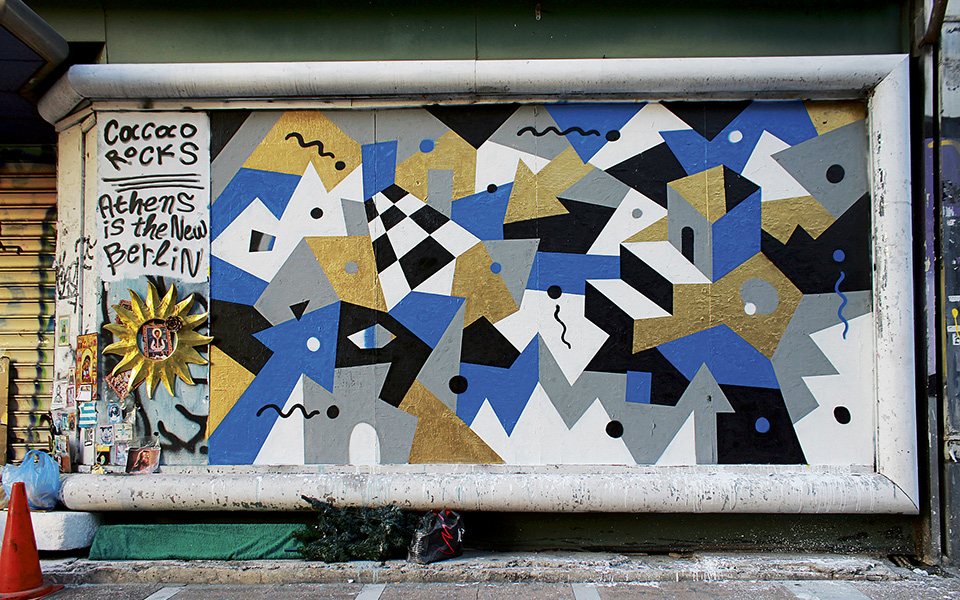
“Documenta’s imminent presence has been both a symptom of and inspiration for the increasing interest in the art scene,” said Cathryn Drake, a critic for the magazine Artforum. But popularity isn’t necessarily indicative of the demand for art work. “The fact that foreign journalists come all the way here to write and report doesn’t mean that the art market benefits at all,” said Yorgos Tzirtzilakis. “They are more interested in what’s happening in Greek society than in the artists themselves.”
When the Documenta team moved to Athens, their presence made it imperative that EMST finally open (the building itself was ready, but they were still hiring the staff). This October, the museum’s director Katerina Koskina and the Minister of Culture, Aristides Baltas, announced the “soft” opening of EMST with its first major event: an exhibition organized in conjunction with the Museum of Contemporary Art, Antwerp. MuHKA director, Bart de Baere, stated that “the future is being created here” and that “Greece is one of the most important countries in Europe right now.”
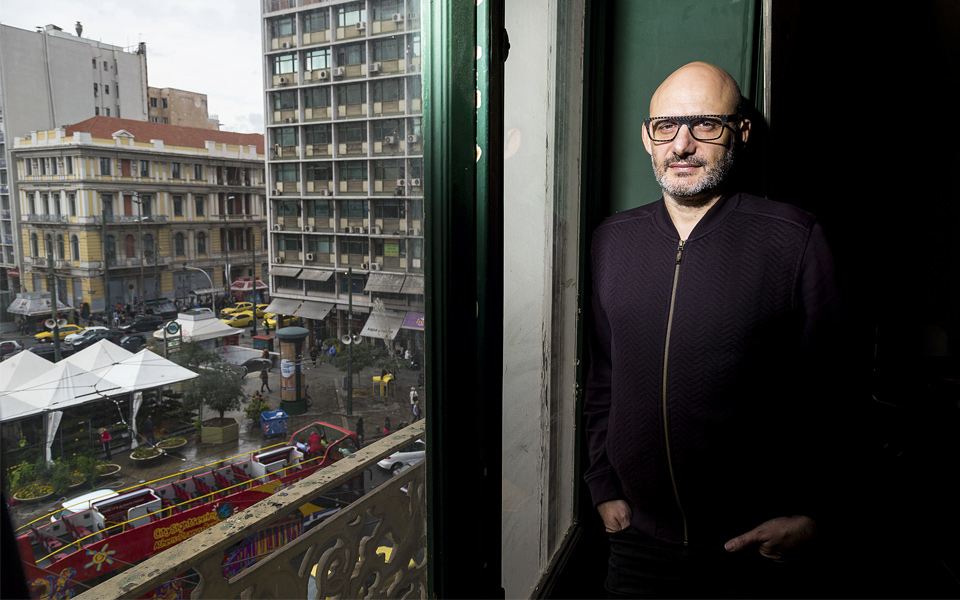
“Greek artists now use different means of expression, we participate in group projects, we take initiatives and we renegotiate the notion of public space. All of these contribute to a more dynamic artistic scene.”
– POKA YIO, Artist, Director of the Athens Biennale
Documenta in Greece is a major event, and will undoubtedly bring the international art community en masse; it is also expected to increase cultural tourism in general. The exhibition is definitely strengthening Athens’ position on the modern cultural map. But what will follow after it closes? Will it change things for the better or are we going to experience, once again, the after-party depression that followed the 2004 Olympic Games?
“Documenta is not going to pull Greece out of its crisis. But it will motivate some foundations, it will give a boost of energy and it’s [already] functioning as an ‘agent provocateur’ by re-shuffling the European art deck,” argues curator Marina Fokidis, head of the Artistic Office of Documenta in Athens. “After it ends, it will leave a consignment of relations between artists, curators, theorists and people working in the arts. It will help create international bonds.” Fokidis was the director of the magazine South as a State of Mind (which has become the official magazine for Documenta 14) and also of Kunsthalle Athena, an exhibition space that left its mark on the city’s art scene.
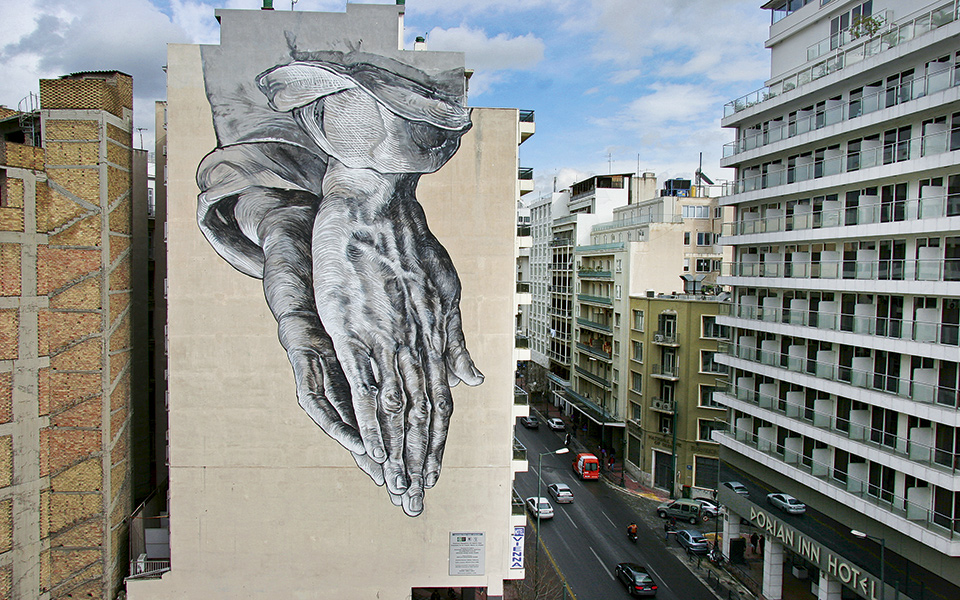
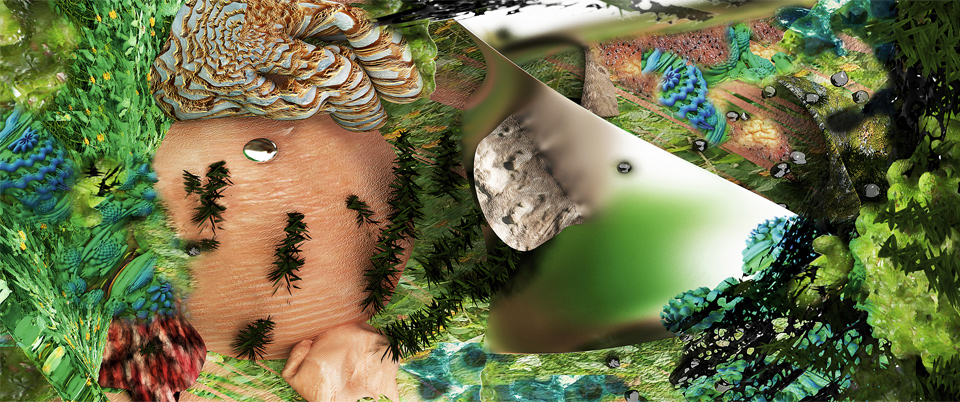
What does she think of the way the scene is evolving? “There is certainly some activity with artists focusing on themes related to the crisis, but there aren’t any voices responding to political matters yet. In my opinion, the next step involves the politicization of the Greek artists. They need to dig deep into what’s happening in the world and not just stick with esthetics and form. Art cannot be passive within a society. It has to play a different role in these difficult times, during which we experience extreme social phenomena.”
Recently, DESTE, along with the New York New Museum, organized an exhibition in the Benaki Museum, featuring young Greek artists. Why aren’t such events, promoting young local talent, held more often? “Private institutes cannot play the role of a state-run contemporary art museum. And the Athenian art scene needs to be stabilized, as it is currently characterized by an inconsistency that can be exhausting. The National Museum of Contemporary Art can offer this sought-after consistency and become an organization of stability and evaluation. But for now, we will have to proceed with this state of temporariness,” points out Tzirtzilakis.
“Athens is an interesting place to be right now, with Documenta happening here. We’re making a platform for European artists under 30. We want to contribute to the local art scene somehow.”
– LUKAS PANEK & PAUL MAKOWSKY, German artists who recently opened their own project space in Metaxourgeio
Everybody who works in the arts recognizes the lack of an infrastructure or some kind of mechanism that would support and promote the fine arts. “Many independent initiatives are bound to grow cold unless they’re supported in some way. There is an imperative need for the museums, the state and the collectors to form a support system,” says Helena Papadopoulos, director of the non-profit space Radio Athènes.
The future will show if this artistic spring in Athens leads to something more permanent or if it’s just an internal shift that will soon be forgotten. Many people fear the latter, but there is some encouraging evidence that things are indeed changing: “This year, there was a record number of applicants for the Athens School of Fine Arts; over a thousand candidates took the exam,” says the school’s dean Panos Haralambous. “Since a career per se is not a secure or guaranteed thing in Greece anymore, people are attempting to change their ideas and lifestyles. The life of an artist seems lighter, more poetic, and yet more real.”

